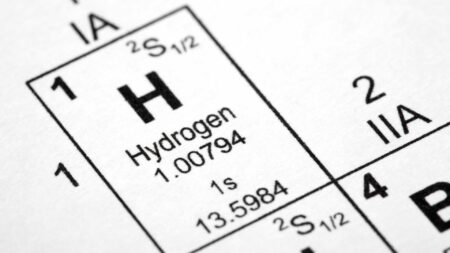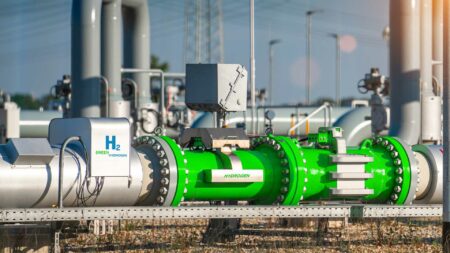Germany plans to fast-track the development of its hydrogen infrastructure as the country strives to pivot to cleaner energy.
As Europe’s largest economy has switched off its last nuclear power plants, it’s looking to hydrogen to help power its energy-hungry industries. The country is among the world’s first to have presented a draft for a core hydrogen network to link its main industrial hubs, stretching 11,200 kilometers (6,960 miles), and on Wednesday joined a project to source the fuel from southern Europe by 2030.
The acceleration law should be presented this year, the Economy Ministry said. It’s also likely that grid operators can start applying for their first hydrogen projects — repurposing of existing gas lines as well construction of new links — as early as November, according to a separate draft law. Some 97% of Germany’s grid is capable already of transporting hydrogen, according to industry data.
The government also is asking grid operators to plan gas and hydrogen networks jointly from 2025, with a requirement to update their plans every other year.
If financing issues are clarified, works may start as early as the first quarter of 2024, said Frank Reiners, chief financial officer of gas firm Open Grid Europe.
OGE is part of the H2Med pipeline project that aims to bring green hydrogen to the country from Spain and Portugal via France by 2030 at latest. The project has applied for European Union funding, and the outcome of that is expected by Oct. 26. The H2Med pipeline aims at transporting 10% of Europe’s total hydrogen demand by 2030 and will require investment of more than €2.5 billion.
Germany’s fast-tracking of its hydrogen infrastructure could have a significant impact on the country’s energy transition and its efforts to reduce greenhouse gas emissions. Hydrogen is a versatile fuel that can be used to generate electricity, heat homes and businesses, and power vehicles. It is also a clean fuel, producing no emissions when burned.
By developing a hydrogen infrastructure, Germany can reduce its reliance on fossil fuels and increase its use of renewable energy. Hydrogen can be produced using renewable energy sources, such as solar and wind power. This can help to reduce Germany’s greenhouse gas emissions and contribute to its climate goals.








